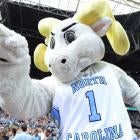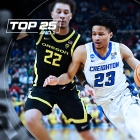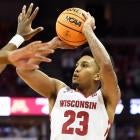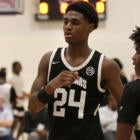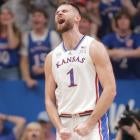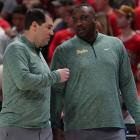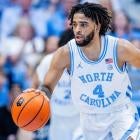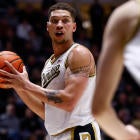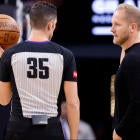The University of North Carolina released its response to the third notice of allegations -- officially, the "second amended" notice of allegations -- on Thursday, disputing the specifics of the NCAA's allegations and arguing jurisdiction in the school's academic scandal.
North Carolina's defense against the NCAA's five major allegations, which include the naming of football and men's basketball as of the most recent updated response, focuses on whether athletes where favored or steered to the selection of the many anomalous classes in the Department of African and Afro-American Studies.
The school has disputed the previous findings in the school-commissioned Wainstein Report, arguing that only 29.4 percent of the students in these classes (many no-show or "paper" classes) where athletes. UNC argues that jurisdiction over the anomalous classes falls to the school's academic creditor, the Southern Association of Colleges and Schools Committee on Colleges.
A summary of UNC's main points in this response: pic.twitter.com/pjeHnLvX0b
— Andrew Carter (@_andrewcarter) May 25, 2017
"The fundamental issue in our case is that the NCAA by-laws cover athletics matters, not how academics are managed," North Carolina athletic director Bubba Cunningham said in a teleconference with reporters on Thursday. "We thoroughly address academic oversight with our accrediting agency, which is the proper governing body for academic issues.
"Our reply to each allegation is based on the NCAA's constitution and member-adopted by-laws. We expect the committee on infractions to consistently apply these by-laws as the case moves forward."
The next step in the case, which has been ongoing since 2011 when a plagiarized paper leaked online, is for the school to face the NCAA's Committee on Infractions, which is led by SEC commissioner Greg Sankey. The two sides have already met once in a "procedural hearing" in October. UNC's football program was previously under NCAA investigation and received a postseason ban in 2012, among other sanctions, for impermissible agent benefits.












